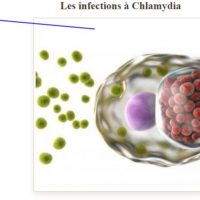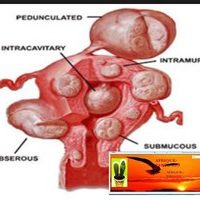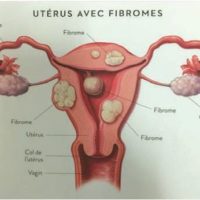Description
Home Remedy To Unblock Fallopian Tubes and Get Pregnant. We offer a good inexpensive herbal tea to treat infection of the fallopian tubes.
Please to join us
Produit 207:Hydrosalpinx, Care salpingitis,tubal infection
The product
The Remedy Hydrosalpinx, Care salpingitis,tubal infection care or chronic infection of the fallopian tubes is a bone remedy against the rebels microbes that attack and destroy the fallopian tubes, making the woman unable to design. Indeed, the fallopian tube is irritated, weakens, ignites, rots and continues to play its role of conducting eggs. The tea treats successfully Gonorrhea infections, candida albicans, trichomoniasis, chlamydia, staphylococci, streptococci, Staphylococcus aureus and allows the fallopian tube to regain its tone. It’s not easy, but with patience in the duration of treatment, the cure is hope.
TECHNICAL SHEET
| Weight | 50g |
| compositions | plant extracts |
| properties | Antibiotic, antiviral, anti-inflammatory and depurative |
| indications | Gonorrhea, candida albicans, trichomoniasis, chlamydia, staphylococci, streptococci, etc. |
| Active subtances | Tannins, glycoside flavonoids immunoreconstituant |
| Presentation | Powder jar or sachet |
| Manual | Read leaflet |
| Side effects | bitter taste |
| Duration of treatment | three months |
| Price | 30 euro |
LEARN MORE
Remedy Hydrosalpinx, Care salpingitis,tubal infection
Presentation
-Powder bag or jar 50 g
Composition
Extracts of plants antibiotics depurative and diuretics.
Price: 30 €
The therapeutic effects.
Medicinenatural in general and especially African medicine favors fieldwork, drainage and sanitation of the human environment and any composition worthy of the name has not only specific plants against evil to treat and especially purifying plants that role rid the body of toxins, killed microbes, weakened or put out of harm’s way. Most chronic diseases are resolved in this approach.
Thus, the powder, its composition is rich in active ingredients of proven efficacy against germs like Gonorrhea, candida albicans, trichomoniasis, chlamydia, etc. By the same principle, it also contains diuretics and depuratives elements to facilitate the evacuation of germs exterminated and sanitation fallopian tubes .
indications
Hydrosalpinx, gonorrhea infections, candida albicans, trichomoniasis, chlamydia,
Farea boil one tablespoon of the powder in one liter of water, cool and filter. Keep cool. Drink half a glass 3 times a day for 14 weeks. Repeat examinations.
Please to visit www.africbio.com
Good remedy against salpingitis. It is an antibiotic complex of plants of proven effectiveness. Please find a cure.
The Remedy :Hydrosalpinx, Care salpingitis,tubal infection is a good product to treat fallopian tubes infected and allow the woman to become fertile. Good remedy against salpingitis. It is an antibiotic complex of plants of proven effectiveness. Please find a cure.
Hydrosalpinx salpingitis, how to get rid? How to get pregnant? We offer a good inexpensive herbal tea to treat infection of the fallopian tubes.
Can you unblock fallopian tubes naturaly ?
Some people claim that natural treatments can be an effective method for treating blocked fallopian tubes. However, there is little scientific evidence to support this claim.
Blocked fallopian tubes are a common cause of infertility in women. They can affect fertility in two ways: by preventing sperm from reaching an egg, and by preventing a fertilized egg from implanting in the uterus.
Either scenario can prevent a woman from becoming pregnant.
This article looks at whether or not there is any scientific evidence to support claims that natural remedies can help treat blocked fallopian tubes. It also outlines the medical treatment options available for blocked fallopian tubes.

The fallopian tubes are female reproductive organs that connect the ovaries to the uterus. Their function is to allow a fertilized egg to pass from the ovaries to the uterus for implantation.
A blockage in the fallopian tubes prevents sperm from reaching the egg. It can also prevent a fertilized egg from making its way to the uterus. Either scenario can lead to female infertility.
In fact, blocked fallopian tubes are responsible for 25–30% of all infertility cases.
The fallopian tubes may become blocked due to damage, inflammation, or scarring. This can happen as a result of:
- previous infections, such as chlamydia or gonorrhea
- fibroids
- pelvic inflammatory disease
- endometriosis
- previous ectopic pregnancy
- previous surgery
Some anecdotal evidence suggests that certain natural treatments may work to clear a blockage in the fallopian tubes. However, there is very little scientific evidence to support these claims.
Below is a list of nonmedical treatments that some claim can help treat blocked fallopian tubes.
Quitting smoking
Smoking can increase the riskTrusted Source of ectopic pregnancy. This occurs when an embryo grows outside of the uterus, in the fallopian tube.
When nicotine from cigarettes breaks down, it produces a substance called cotinine. Cotinine reduces production of a gene within the fallopian tubes, called BAD.
A reduction in the BAD gene changes the environment of the fallopian tube, making it similar to that of the uterus. This can cause the embryo to start developing in the fallopian tube instead of traveling to the uterus. This is called ectopic pregnancy.
Ectopic pregnancies can scar and damage the fallopian tubes, leading to fallopian tube blockages and infertility.
Smoking can also cause other issues with fertility, such as:
- an increased rate of egg loss
- decreased sperm quality
- a doubling of the rate of infertility, compared with people who do not smoke
Avoiding alcohol
Alcohol consumption can have a negative effect on fertilityTrusted Source and pregnancy. For example, drinking alcohol while trying to conceive may have the following effects:
- reducing fecundability, which is the likelihood of getting pregnant within one menstrual cycle
- reducing ovarian reserves, which refers to the amount and quality of eggs in the ovaries
- increasing the production of steroid hormones
- reducing sperm quality
Currently, there is no research investigating the effects of alcohol consumption on the health of the fallopian tubes.
However, people who are trying to conceive should try to avoid alcohol. If a woman is pregnant and does not know it yet, it is possible to harm the fetus and increase the risk of fetal alcohol syndrome.
Reducing stress
People may find that reducing their stress levels has a positive effect on their fertility. The American Society for Reproductive Medicine suggest the following activities for lowering stress:
- practicing mindfulness
- trying meditation
- trying visualization
- journaling
- reading self-help books
- practicing yoga
- walking or hiking
- trying massage therapy
Exercising
Physical activity may have a positive effect on fertility. A 2012 study investigated fertility in 3,628 women, aged 18–40 years, who were planning a natural pregnancy.
The study found that replacing vigorous exercise with moderate exercise appeared to improve fertility among lean women. Also, any type of physical activity appeared to improve fertility among women with overweight or obesity.
However, there is currently no direct evidence to suggest that exercise will have any effect on blocked fallopian tubes specifically.
Trying manual pelvic physical therapy
One 2008 studyTrusted Source looked at the effects of manual pelvic physical therapy on infertility. The study included 28 women whose fallopian tubes were completely blocked.
The participants had 20 hours of physical therapy over the course of a week. Therapists carried out treatment on the fallopian tubes by physically manipulating the surrounding tissues.
The treatment was successful in opening one or both fallopian tubes in 17 of the 28 participants. Nine of the 17 participants went on to have a natural pregnancy from the uterus.
Trying Chinese herbal medicine
A 2015 meta-analysis looked at the effects of Chinese herbal medicine on infertility. The review covered the cases of 4,247 women with infertility, many of whom had blocked fallopian tubes.
The review suggests that Chinese herbal medicine could potentially double pregnancy rates within 3–6 months, compared with Western medical treatments.
Consuming turmeric
Turmeric contains a chemical called curcumin, which has strong antioxidant, antimicrobial, and anti-inflammatory properties.
According to one 2017 reviewTrusted Source, curcumin can help reduce inflammatory conditions inside the body. However, it is not clear whether or not curcumin helps treat blocked fallopian tubes specifically.
People can take turmeric in supplement form, or they can try adding the spice to meals. Adding black pepper will increase the bioavailability of the turmeric, meaning that the body will be able to use the turmeric more effectively.
Getting more vitamin C
Vitamin C is an antioxidant that helps:
- limit free radical damage to cells
- support the function of the immune system
- reduce inflammation in the body
- assist in the production of the protein collagen, which is important for wound healing
Theoretically, these factors may help reduce inflammation, infection, or scar tissue development in the fallopian tubes. However, there is currently no scientific evidence to support this theory.
Nonetheless, vitamin C is essential for health. Increasing vitamin C intake through diet or supplementation is unlikelyTrusted Source to have any adverse health effects.
Consuming omega-3 fatty acids
Scientists have identified a link between a higher intake of omega-3 fatty acids and decreased levels of inflammation in the body.
Food sources high in omega-3 include:
- flaxseeds and flaxseed oil
- walnuts and walnut oil
- canola oil
- oily fish and fish oils
Reducing generalized inflammation by increasing omega-3 intake may help reduce inflammation in the fallopian tubes. However, there is no direct evidence to support this.
Get a comprehensive picture of your fertility status without going to a clinic. Free shipping, fast results, and 24/7 support. Order today for 30% off.
If natural treatment options do not work, medical treatment may be necessary to unblock the fallopian tubes.
The type of treatment a woman has will depend partly on the severity of the damage to their fallopian tubes.
The following sections outline some potential options.
Please to join us:
Call: +22960081765
WhatsApp: +22960081765
Mail: kpossounarso@gmail.com
Treatment for mild damage
If a woman has minimal damage to their fallopian tubes, their doctor may advise surgery to remove the blockage. This should enable the woman to conceive naturally.
Women have a higher chance of conceiving naturally after tubal surgery if:
- they are younger
- they have minimal scar tissue in the fallopian tubes
- their conception partner has healthy sperm
Ectopic pregnancy is a risk after undergoing surgery on the fallopian tubes. If a woman does undergo tubal surgery, they should inform their doctor as soon as they suspect that they are pregnant. A doctor can then monitor the pregnancy to ensure that the embryo is developing correctly inside the uterus.
Treatment for severe damage
If a woman has severe damage to their fallopian tubes, they may be unable to have a natural pregnancy. In these cases, a doctor may recommend in-vitro fertilization (IVF) to increase the chances of pregnancy.
In some cases, damaged fallopian tubes may fill with a fluid called hydrosalpinx. This fluid can reduce the success rate of IVF treatment.
If hydrosalpinx is present, a doctor may advise the removal of the damaged tubes before starting IVF. This will help boost the success rate of the treatment.
symptoms and complications
In many cases, infertility is the only symptom of blocked fallopian tubes. However, if there is severe damage to the fallopian tubes, chronic pelvic pain may also occur.
Women should see a doctor if they:
- experience persistent pain in the pelvic area
- are below the age of 35 and have been unable to conceive after a year of tryingTrusted Source
- are 35 years or older and have been unable to conceive after 6 months of trying
A doctor will work to diagnose the cause of pelvic pain or apparent infertility. As part of the diagnostic procedure, they may carry out tests to check for blockages in the fallopian tubes.
Women should also see a doctor if they become pregnant following surgery to the fallopian tubes. The doctor will be able to check that the pregnancy is developing correctly.
Please to join us:
Call: +22960081765
WhatsApp: +22960081765
Mail: kpossounarso@gmail.com
Making certain lifestyle and dietary changes may help boost female fertility. However, there is little to no scientific evidence to suggest that natural treatments can help treat blocked fallopian tubes.
The one exception to this is manual pelvic physical therapy, which appears to be successful in some cases.
If a woman does not experience any benefit from trying natural treatments, they should see their doctor. The doctor can recommend medical treatments to unblock or remove the fallopian tubes or otherwise increase the likelihood of pregnancy.
A woman should see their doctor if they become pregnant following surgery to the fallopian tubes. A doctor will need to monitor the pregnancy to ensure that the embryo is developing correctly inside the uterus.
Please to join us:
Call: +22960081765
WhatsApp: +22960081765
Mail: kpossounarso@gmail.com





Commentaires récents